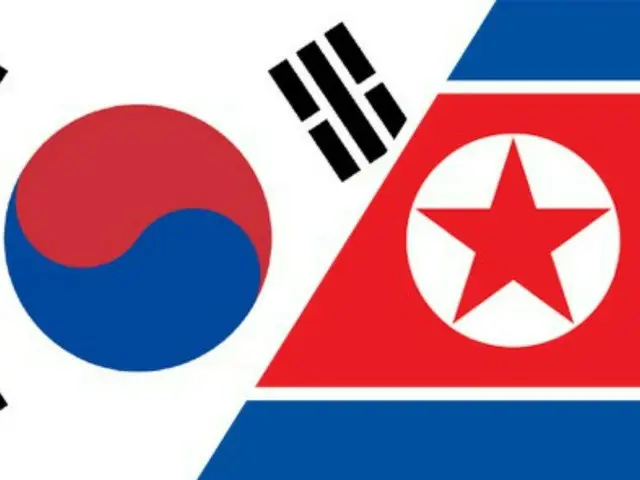State media reported, ``The inter-Korean military agreement signed in 2018 to ease tensions on the Korean Peninsula has completely lost its effect five years and four months after it was signed.'' (Public broadcaster KBS). but
, the Ministry of National Defense acknowledged that consultation with relevant departments is necessary for scrapping. This agreement, known as the "9.19 Inter-Korean Military Agreement," was signed in September 2018 by then-President Moon Jae-in.
This is an annex to the Pyongyang Joint Declaration signed by North Korean leader Kim Jung Eun. The agreement states that the two Koreas will make efforts to ease military tensions, and that the two Koreas will engage in military cooperation on land, sea,
It was decided to cease all hostilities in the air and take measures to transform the demilitarized zone (DMZ) into a peaceful zone. One of the items originally included in the agreement was the trial of a guard post (GP) in the DMZ.
A joint investigation was carried out at the mouth of the Hangang River, which runs between the north and south, and work was carried out to excavate the remains of soldiers who died in the Korean War. However, in 2019, it was held in Hanoi, Vietnam.
After the US-North Korea summit meeting ended in failure, inter-Korean relations cooled down again, and implementation of the agreement came to a halt. South Korean President Yoon Seo-gyeol, who takes a tough stance against North Korea, is
Since then, they have indicated that they would suspend the agreement if serious circumstances arise. Shin Won-sik, who took office as South Korean Minister of Defense in October last year, also commented on the agreement, saying, ``As much as possible.
We will push for the suspension of its effectiveness as soon as possible." Last November, North Korea sent a military reconnaissance satellite to a wrap-up party. As a countermeasure to this, in the same month the South Korean government announced that it would
The decision was made to suspend the effect of "Setting Areas". Meanwhile, North Korea immediately announced that it was ``abandoning'' the agreement, saying it would ``immediately reinstate all military measures that had been suspended under the agreement.'' Supervision near the North-South Military Demarcation Line
Visual points were restored and soldiers and firearms were relocated. Amid rising tensions between the two Koreas, North Korea repeatedly launched shelling north of the Northern Limit Line (NLL) in the Yellow Sea from the 5th to the 7th of this month. The South Korean army is attacked by artillery from the North Korean army.
It was announced that more than 200 shots were fired on the 5th, more than 60 on the 6th, and more than 90 on the 7th. ) Joseon Labor
On the 7th, Deputy Minister of the Workers' Party explained that the shelling carried out the day before was a ``deception operation'' to test the South Korean military's detection capabilities. “(The South Korean military) misjudged the sound of explosives exploding as gunfire, and
"He assumed that it was a provocation, and brazenly lied that the plane had fallen into a maritime buffer zone north of the Yellow Sea's Northern Limit Line." He added, ``Our military has not fired a single shell into the area.'' (South Korea)
"The military jumped on the bait we threw," he said. The South Korean military criticized this, calling it ``nothing more than low-level psychological warfare.'' North Korea conducted artillery fire near South Korea's northwest island in the Yellow Sea on the 6th.
He said he had learned that explosives were detonated about 10 times before and after the attack, refuting Yosho's claim that it was a "deception operation."
In addition, the South Korean military responded to North Korea's artillery provocations for three consecutive days.
The two countries declared the complete abandonment of the buffer zone established in the inter-Korean military agreement that prohibits hostilities. At a press conference on the 8th, Lee SungJun, director of the Joint Chiefs of Staff's public affairs office, said, ``The cessation of hostilities zone no longer exists.''
There is no such thing.” Military authorities plan to soon resume training in the buffer zone as before the agreement. Meanwhile, the Ministry of National Defense announced on the 9th that if the military agreement is to be completely abolished, consultations will be held with relevant departments such as the Ministry of Unification.
It was recognized that this is necessary. JoongAng Ilbo, a South Korean newspaper, reported, ``With the military authorities' latest announcement, there is a view that the ``September 19 Agreement'' (another name for the inter-Korean military agreement) is effectively dead.''
Meanwhile, the Hankyoreh, a South Korean newspaper, reported, ``While it has been pointed out that the South Korean government should respond resolutely to North Korea's military provocations, it should also make efforts toward peace management.'' According to the paper, North
In an interview with the same newspaper, Cho Sung-ryul, a visiting professor at Han National University, said, ``When the United States and Japan point out North Korea's provocations, they always say that the door to dialogue is open and work to maintain peace.'' "
However, South Korea has closed even the door to open dialogue, such as the September 19 inter-Korean military agreement,'' he said.
2024/01/10 12:51 KST
Copyrights(C)wowkorea.jp 5

